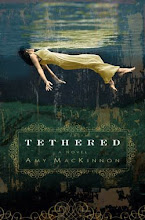So much detail to put in just the right places. How does anyone ever write a novel? There are tricks, of course, passed along from writer to writer. Not to over simplify -- or over promise as per our header here, but here are our best suggestions in a nutshell.
Q: I've written my first draft and there are sizeable clumps of information that need to be threaded throughout. What's the best way to do this? I started an outline, but got sick of it. I read Anne Lamott's Bird by Bird about plot treatment--summarize chapter by chapter what happens. I'm thinking this might be the best way to go. I know the chronological thread of my MC's life, but I want to start when she's an adult, then go back and insert background on her past, her relationship with her mother, her job, her relationship with her boss, how she met certain friends, all while keeping the main story moving forward. Without it all becoming a huge mess. How have you done it? Hannah's Thread Obsessed and Millefeuille post were helpful, but maybe a little more nuts and bolts about how to work those threads? And Lynne's post on journals hit home. I had one character as an ex-Marine, then realized it didn't really fit his personality! Exactly what does a thread consist of--subplots or just the chronology of each character?
Lynne Griffin
Like Amy, my storytelling process is more organic than plotted or outlined. I don't choose jobs or homes or life circumstances for my characters, these come to me over time. And the time I spend thinking about my characters--listening to their story, wondering about their predicaments-- far exceeds the time I spend putting words on the page. That said, as you mentioned above, I keep a journal for each novel. Not only do I jot down plot points as they come to me, but I note what threads I'll need to go back and tighten in revision. Writing fiction, for me, is equal parts art and science. I strive to write for the story, then I go back to be sure I've been true to craft. As my dear friend Michael Lowenthal once said, "Let readers dismiss the work on taste, not talent."
Amy MacKinnon
Outlines? Plot treatments? Chapter summaries? It all sounds so technical. I'm afraid I can't help you with this one because my process is more organic and very simple. In terms of threads, I introduce them the way I'm introduced to other people's stories in real life: in bits and pieces. When I'm getting to know someone, they don't tell me everything of their past and present right away, and they almost always hedge the truth. Time teases out the story, trust, circumstances, a shared experience. It's a gradual process. And then, finally, there's the big revelation and you realize the clues were there all along. It's simply a matter of identifying each story in your novel, and ensuring each is told as fully, as richly as possible, and all sharing a common thread.
Hannah Roveto
I always do a chapter-by-chapter synopsis, for my own work and when I read for others. Hallie Ephron teaches a High-Low Revision process; she explains it in her Writing and Selling Your Mystery Novel, which is perfect for any kind of novel. Whether or not you're an outliner, and I'm not, you do need to see your first draft from higher ground and follow each character through. The draft is very organic for me, messy even. Once it's complete, then comes the work to make sure it doesn't stay that way! I do synopses on a couple of sheets of lined paper, with 3-4 lines per chapter. Line one is the synopsis, with the date in the left margin and setting, then a quick description of key points. When I've got them all down I go back and make little notes -- one or two words -- thread by thread, character by character, on what info gets revealed to whom when ("R 2 K, dad issue"). Leaving yourself little space makes you focus. What really does happen here that is important to the reader/story? Best to do this with a cup of hot tea to one side, in the comfiest office chair you own. The few hours it takes are well spent!
 When we began this blog in 2006, our goal was to cover the subject of writers' groups and we feel we've done so rather thoroughly. Our posts on forming, maintaining, and making the best use of a group can be found in the archives and will remain there as a resource.
When we began this blog in 2006, our goal was to cover the subject of writers' groups and we feel we've done so rather thoroughly. Our posts on forming, maintaining, and making the best use of a group can be found in the archives and will remain there as a resource.






